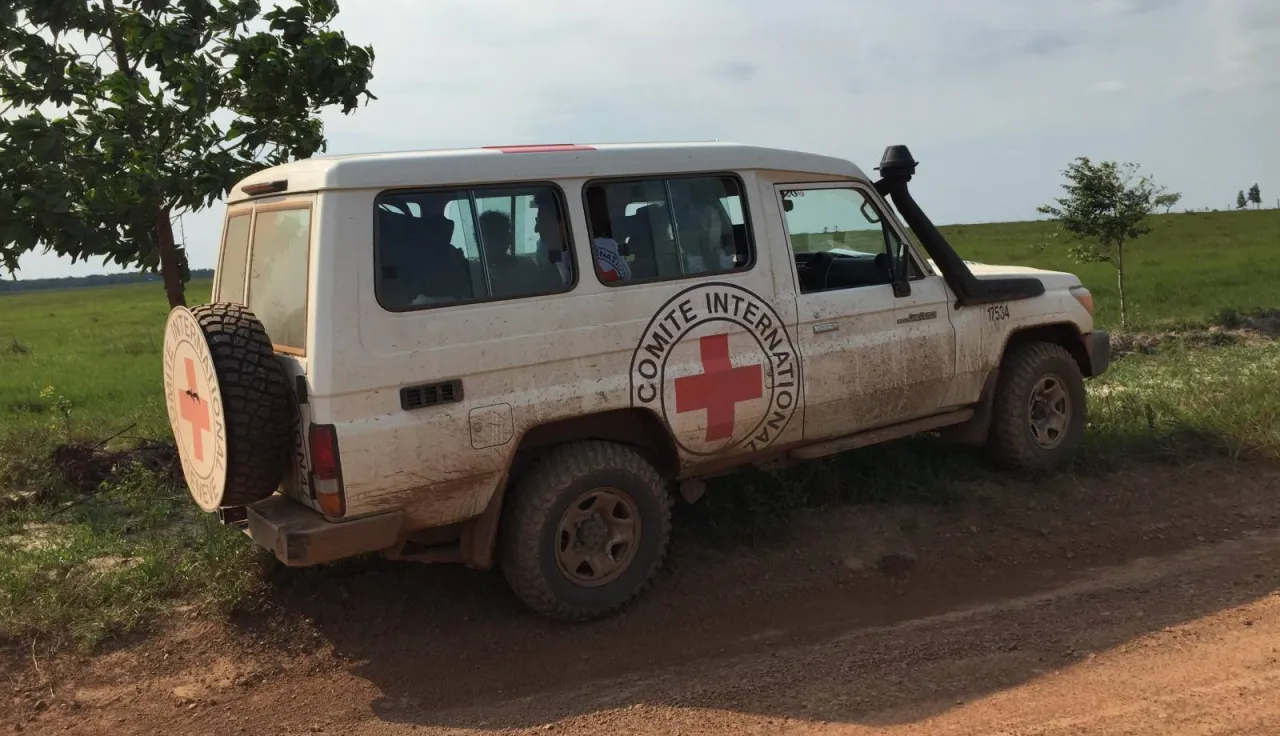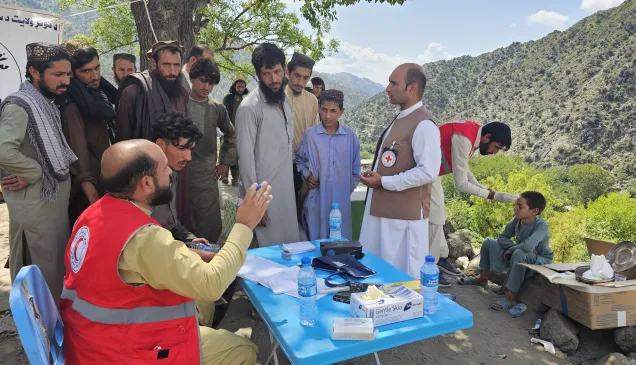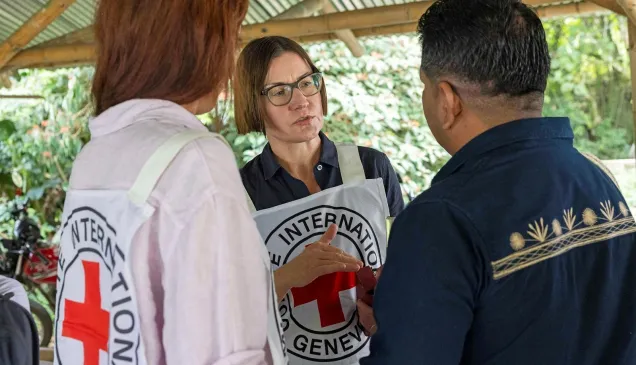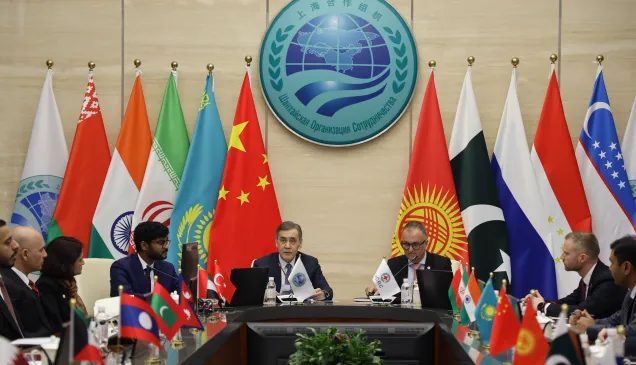Stop putting targets on aid workers’ backs

Opinion: By Yasmine Praz Dessimoz, Director of Operations for the ICRC
I have sent colleagues from the International Committee of the Red Cross into war zones. I’ve waited anxiously for check-in calls from teams crossing hostile front lines. I’ve stood beside grieving families at memorials for those who never came home.
When I see commentators engage in political theatre and diminish this life-saving work, accuse humanitarian workers of bias or question their integrity with inflammatory rhetoric, I am compelled to respond. These online attacks don’t land on faceless institutions. They target real people.
Women and men who work for the ICRC and other humanitarian organizations do their best to help some of the most vulnerable people on the planet while accepting the risk of being caught in crossfire or kidnapped. They interact with armed groups not because they condone their actions, but because doing so may be the only way to reach people trapped behind front lines.
The Geneva Conventions have been signed by every country in the world. In doing so, they have mandated the ICRC to ease suffering in conflict precisely because of our neutrality and impartiality, which requires us to keep a trusted relationship with all sides in order to access as many vulnerable people as we possibly can. Yet the ICRC has increasingly found itself at the centre of baseless accusations and orchestrated smear campaigns. These attacks may feel righteous to those making them. I understand that many people are driven by pain, anger and the unbearable feeling that someone should be doing more. But when we substitute outrage for accuracy or for understanding, we distort the very system that was built to limit suffering in the first place.
Let me be clear: when they attack humanitarian neutrality and the humanitarian workers upholding it, they aren’t striking at the ICRC. They are undermining the fragile trust that makes it possible for civilians in war zones to get the food, water or medical care they need.
In 2024, the ICRC visited 678 places of detention to ensure humane treatment and contact with loved ones for the more than 737,000 detainees held there. We helped reunite hundreds of people, including 537 children, with their families. More than 34 million people gained access to clean water, and over 3 million received food assistance. The ICRC supported 1,416 health facilities in conflict-affected areas around the world, including 125 physical rehabilitation centres that help people recover and regain their dignity after serious injury or trauma.
Behind the figures are real lives and people. Such as Majok, a South Sudanese man separated from his family in 2016, who was reunited with his mother and sister in Cairo seven years later through ICRC tracing services. Or Asif, a young boy in Afghanistan who received a prosthetic leg at our rehabilitation centre in Herat after suffering terrible injuries when leftover ammunition exploded, killing his sister and three cousins.
Cases such as those of Majok and Asif are made possible precisely because we maintained the trust needed to operate across conflict lines.
Critics choose to ignore these lives changed for the better. Instead, they cast humanitarian action as betrayal. They present selective facts, stripped of context, followed by personal attacks against humanitarian workers, questioning their motives, their competence and their moral compass. These emotional appeals cleverly exploit social media algorithms to paint a deeply misleading picture, blaming those risking everything to ease suffering, and giving a pass to those who actually create or perpetuate it.
Recently, some voices accused the ICRC of “doing nothing” for Israeli hostages held by Hamas. That accusation is false. It is specifically because we maintain trusted relationships with all parties that we were able to facilitate the hostage and detainee releases in November 2023 and January 2025. This is the power of neutrality, this is why we do the work we do.
Claims that the ICRC isn’t advocating on behalf of the hostages are also deeply misleading. From the outset, we have consistently called for their immediate and unconditional release and demanded humanitarian access to all hostages held in Gaza. But as in other conflicts where we have faced similar criticism, the simple truth is that the ICRC has no legal power to force armed groups to comply. Likewise, we have been criticized for not having visited detainees held in Israeli jails. We cannot storm prison or other places of detention. All we can do is to persistently request access until it is granted in accordance with the rules of war.
The impulse to demand more is understandable. So is the frustration. But turning that frustration into attacks on one of the few intermediaries able to reach both sides doesn’t help hostages, detainees or their families. It only helps those who benefit from chaos, division and the breakdown of humanitarian norms.
It is legitimate to scrutinize humanitarian organizations. We are not above criticism. But criticism must be informed and constructive. The kind of inflammatory rhetoric I’ve seen recently, including personal insults against my colleagues, only endangers future humanitarian access.
Humanitarian work often exists in the grey areas most people never have to confront. It requires engaging even with those whose actions we abhor. If you care about civilians, hostages and dignity in war, then you must care about protecting the space that allows neutral humanitarian work to happen.
The ICRC is not perfect. No human institution is. But we are among the few remaining mechanisms the world has to uphold humanity in war. When neutrality is dismantled in the name of outrage, we don’t just lose an organization, we lose the possibility of helping those who have all but lost hope of getting help.



